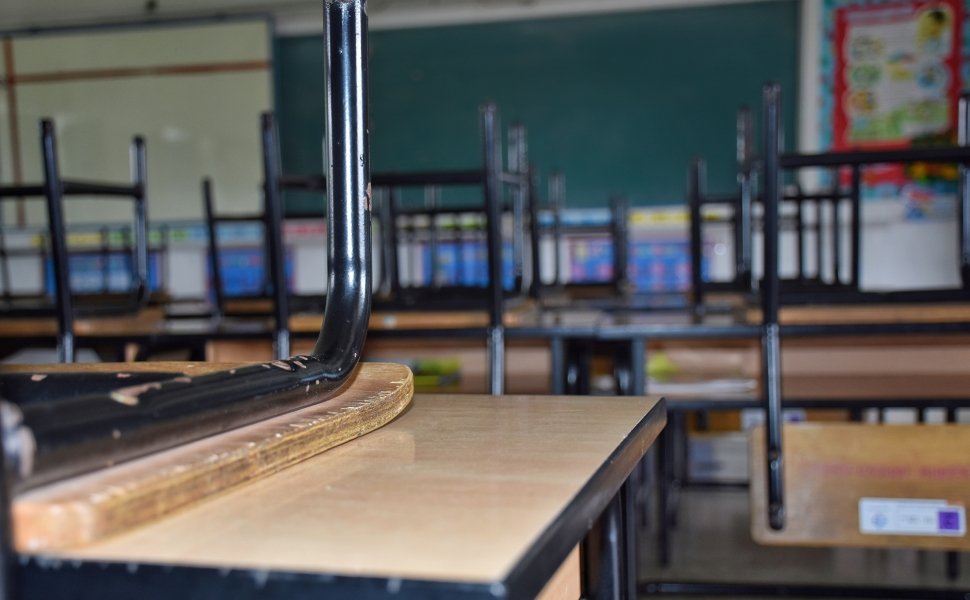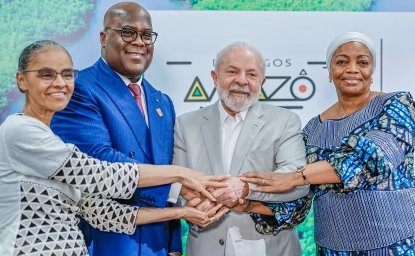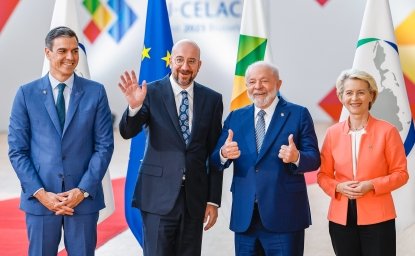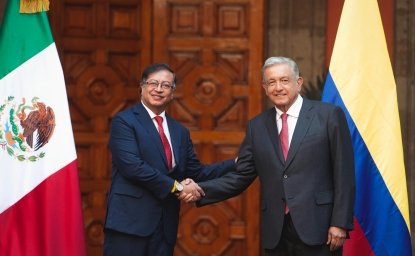
COVID-19 has upended school systems and worsened academic disparities throughout the hemisphere. Governments are scrambling to cobble together remote learning programs, including in regions where few students have laptops or tablets and many lack internet access. In this episode, our experts and guest Gabriel Sánchez Zinny, the former education minister for the Province of Buenos Aires, discuss back-to-school challenges for students who can’t go back to school.
Available on SoundCloud; Spotify; Apple Podcasts
Listen to Previous Episodes of Americas 360
Duncan Wood
- "For years Mexican politicians have been talking about providing universal access to the internet. They’ve been talking about providing computers to every student and the fact is as you travel throughout Mexico you realize that although one of the major telecommunications companies says that all of Mexican territory is their territory, it’s very often you don’t get a signal. And as we have all learned during this pandemic, having access to internet is not the same as having reliable access to internet."
- "What’s been intriguing about the Mexican case recently is that Mexico has decided to basically forgo internet teaching and they have opted for a television-based platform, something they’ve been using for a number of years anyway and through open university courses and... the telesecondaria they’ve been trying to provide open access to post secondary education. There are a number of problems with this though. Although most of the population has access to television, the timing of the classes is not always optimal, there have been examples of classes being scheduled late at night and kids are not going to be learning at their optimal rate at those times. Other questions that are out there are… look at the telesecondaria experience to date and those have been the poorest performing students in Mexico."
Christopher Sands
- "I think there’s an element that Latin America could benefit from that Canada certainly has and that’s greater social cohesion. We have not seen the partisan polarization on the issue of COVID response that we’ve seen for example in the United States. So as a result, most provinces are working constructively to get kids back to school, whether it’s to a private school, usually a religious-affiliated school, or to the public schools."
- "I think it’s partly also that within the Canadian system the federal government is run by the Liberals, almost all the provinces are run by other parties. And on education there is a fiscal federalism dynamic where the federal government provides the funding and the provinces provide the delivery whether it’s healthcare or education or whatnot. I think that’s tended to make people cooperate a bit more. At the end of the day though I think it also meets with what the public, the average Canadian expects, which is that in a crisis, put partisanship to one side and let’s all focus on working together. Whether that’s exportable, it’s certainly emulatable and I think we should expect that from politicians across the region if we can."
Cynthia Arnson
- "There are huge inequalities in access to internet, not only between and among countries in Latin America and the Caribbean, but also within countries. You have places like Argentina, Chile, Uruguay that have penetration of internet somewhere 85-90% down to small central American countries like Honduras and Nicaragua that have maybe in the low 40s. I think overall, Latin America’s access to internet and digital penetration is really low even for the developing world. This creates a huge gap. There are also within countries places in large cities where people have access to internet, have smart phones even if they don’t have a computer at home or a laptop and in rural areas it’s a lot different and even within cities, the difference between say a business district and favelas or slums in a large capital city is also tremendous."
- "On a brighter note, I think sometimes there is a great deal of innovation that is prompted by a crisis of this nature. The Dominican Republic is putting in a thousand free Wi-Fi hotspots. There’s a renewed push to get these education technology platforms up and running. The limitations and inequalities are what they are but I think that the region is really stretching to find ways to meet this challenge and there may some innovations that may be more permanent and long-lasting."
Bejamin Gedan
- "It’s all a profound indictment of the public education systems in the region that long has acknowledged the need for better access to technology. It shouldn’t have required a pandemic where remote education is the only option for these investments to have been made."
- "In countries that made the investments earlier like Uruguay, today every student in the Uruguay public education system has access to technology and an educational device of some sort that the government is investing in. For those that invested it’s paying off now in a really important way, those that did not are suffering from either a lack of foresight or in many cases they recognized the problem, they just never put in the resources needed."
Ricardo Zúñiga
- "I think the concept of the internet and access to information as a utility is absolutely a key concept. It’s no longer something that’s debatable. Clearly access to information is completely linked to not only education but almost every other aspect of living and when you run into a crisis like this one it’s a perfect example of why that’s the case."
- "Within countries there’s also the issue of which populations are being severely impacted… and women and young girls are disproportionately impacted because they’re expected to carry out so many of the duties at home… What you’re seeing is as many as 17% of young women across the region being unable to attend school beyond the primary level and in this case, given the nature of the crisis, often young women and girls are asked to carry that burden at home while boys are maybe able to continue their education."
Gabriel Sánchez Zinny
- "[Before COVID-19] Universities in Latin America were still not digital. Around 100 universities in Argentina didn’t have undergraduate digital programs. Now all of them are working with Zoom or some other platform. Technology is clearly here to stay and also because teachers are becoming more familiarized with the use of technology."
- "We also need to study and analyze…the psychological effects. The depression, trauma, many effects that are impacting children and are impacting adults not just on education but in terms of being in lockdown for so many months. Talking with your parents about war and depression and pandemic, many words that are new for the newer generations in Latin America. That I think will have an effect as well not just from an education point of view but from a psychological and sociological point of view."
Guests






Moderator


Mexico Institute
The Mexico Institute seeks to improve understanding, communication, and cooperation between Mexico and the United States by promoting original research, encouraging public discussion, and proposing policy options for enhancing the bilateral relationship. A binational Advisory Board, chaired by Luis Téllez and Earl Anthony Wayne, oversees the work of the Mexico Institute. Read more


Latin America Program
The Wilson Center’s prestigious Latin America Program provides non-partisan expertise to a broad community of decision makers in the United States and Latin America on critical policy issues facing the Hemisphere. The Program provides insightful and actionable research for policymakers, private sector leaders, journalists, and public intellectuals in the United States and Latin America. To bridge the gap between scholarship and policy action, it fosters new inquiry, sponsors high-level public and private meetings among multiple stakeholders, and explores policy options to improve outcomes for citizens throughout the Americas. Drawing on the Wilson Center’s strength as the nation’s key non-partisan policy forum, the Program serves as a trusted source of analysis and a vital point of contact between the worlds of scholarship and action. Read more


Canada Institute
The mission of the Wilson Center's Canada Institute is to raise the level of knowledge of Canada in the United States, particularly within the Washington, DC policy community. Research projects, initiatives, podcasts, and publications cover contemporary Canada, US-Canadian relations, North American political economy, and Canada's global role as it intersects with US national interests. Read more


Brazil Institute
The Brazil Institute—the only country-specific policy institution focused on Brazil in Washington—aims to deepen understanding of Brazil’s complex landscape and strengthen relations between Brazilian and US institutions across all sectors. Read more


Argentina Project
The Argentina Project is the premier institution for policy-relevant research on politics and economics in Argentina. Read more

Related Episodes
Browse all episodes
Brazil and the Future of the Amazon

Europe and the Americas: The Road Ahead for Transatlantic Cooperation

LGBTQ+ Rights in the Americas: Progress and Remaining Challenges

